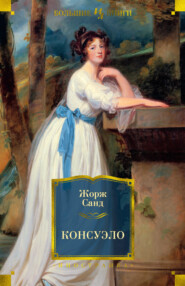По всем вопросам обращайтесь на: info@litportal.ru
(©) 2003-2024.
✖
The George Sand-Gustave Flaubert Letters
Настройки чтения
Размер шрифта
Высота строк
Поля
I am still ON MY FEET, as Doctor Favre says. No old age yet, or rather normal old age, the calmness … OF VIRTUE, that thing that people ridicule, and that I mention in mockery, but that corresponds by an emphatic and silly word, to a condition of forced inoffensiveness, without merit in consequence, but agreeable and good to experience. It is a question of rendering it useful to art when one believes in that, to the family and to friendship when one cares for that; I don't dare to say how very simple and primitive I am in this respect. It is the fashion to ridicule it, but let them. I do not want to change.
There is my SPRING examination of my conscience, so as not to think all summer about anything except what is not myself.
Come, you, your health first? And this sadness, this discontent that Paris has left with you, is it forgotten? Are there no longer any painful external circumstances? You have been too much shaken also. Two of your dearest friends gone one after the other. There are periods in life when destiny is ferocious to us. You are too young to concentrate on the idea of REGAINING your affections in a better world, or in this world made better. So you must, at your age (and at mine I still try to), become more attached to what remains. You wrote that to me when I lost Rollinat, my double in this life, the veritable friend whose feeling for the differences between the sexes had never hurt our pure affection, even when we were young. He was my Bouilhet and more than that; for to my heart's intimacy was joined a religious reverence for a real type of moral courage, which had undergone all trials with a sublime SWEETNESS. I have OWED him everything that is good in me, I am trying to keep it for love of him. Is there not a heritage that our beloved dead leave us?
The despair that would make us abandon ourselves would be a treason to them and an ingratitude. Tell me that you are calm and soothed, that you are not working too much and that you are working well. I am not without some anxiety because I have not had a letter from you for a long time. I did not want to ask for one till I could tell you that Maurice was quite well again; he embraces you, and the children do not forget you. As for me, I love you.
G. Sand
CLXV. TO GEORGE SAND
No, dear master! I am not ill, but I have been busy with moving from Paris and with getting settled in Croisset. Then my mother has been very much indisposed. She is well now; then I have had to set in order the rest of my poor Bouilhet's papers, on whom I have begun the article. I wrote this week nearly six pages, which was very good for me; this work is very painful in every way. The difficulty is in knowing what not to say. I shall console myself a little in blurting out two or three dogmatic opinions on the art of writing. It will be an opportunity to express what I think; a sweet thing and one I am always deprived of.
You say very lovely and also good things to me to restore my courage. I have hardly any, but I am acting as if I had, which perhaps comes to the same thing.
I feel no longer the need of writing, for I used to write especially for one person alone, who is no more. That is the truth! And yet I shall continue to write. But I have no more liking for it; the fascination is gone. There are so few people who like what I like, who are anxious about what I am interested in! Do you know in this Paris, which is so large, one SINGLE house where they talk about literature? And when it happens to be touched on incidentally, it is always on its subordinate and external sides, such as the question of success, of morality, of utility, of its timeliness, etc. It seems to me that I am becoming a fossil, a being unrelated to the surrounding world.
I would not ask anything better than to cast myself on some new affection. But how? Almost all my old friends are married officials, thinking of their little business the entire year, of the hunt during vacation and of whist after dinner. I don't know one of them who would be capable of passing an afternoon with me reading a poet. They have their business; I, I have none. Observe that I am in the same social position that I was at eighteen. My niece whom I love as my daughter, does not live with me, and my poor good simple mother has become so old that all conversation with her (except about her health) is impossible. All that makes an existence which is not diverting.
As for the ladies, "my little locality" furnishes none of them, and then, – even so! I have nevver been able to put Venus an Apollo in the same coop. It is one or the other, being a man of excess, a gentleman entirely given over to what he does.
I repeat to myself the phrase of Goethe: "Go forward beyond the tombs," and I hope to get used to the emptiness, but nothing more.
The more I know you, yourself, the more I admire you; how strong you are!
Aside from a little Spinoza and Plutarch, I have read nothing since my return, as I am quite occupied by my present work. It is a task that will take me up to the end of July. I am in a hurry to be through with it, so as to abandon myself to the extravagances of the good Saint-Antoine, but I am afraid of not being SUFFICIENTLY IN THE MOOD.
That is a charming story, Mademoiselle Hauterive, isn't it? This suicide of lovers to escape misery ought to inspire fine moral phrases from Prudhomme. As for me, I understand it. What they did is not American, but how Latin and antique it is! They were not strong, but perhaps very sensitive.
CLXVI. TO GEORGE SAND
Sunday, 26 June, 1870
You forget your troubadour who has just buried another friend! From the seven that we used to be at the beginning of the dinners at Magny's, we are only three now! I am gorged with coffins like an old cemetery! I am having enough of them, frankly.
And in the midst of all that I keep on working! I finished yesterday, such as it is, the article on my poor Bouilhet. I am going to see if there is not some way of reviving one of his comedies in prose. After that I shall set to work on Saint-Antoine.
And you, dear master, what is happening to you and all your family? My niece is in the Pyrenees, and I am living alone with my mother, who is becoming deafer and deafer, so that my existence lacks diversion absolutely. I should like to go to sleep on a warm beach. But for that I lack time and money. So I must push on my scratches and grub as hard as possible.
I shall go to Paris at the beginning of August. Then I shall spend all the month of October there for the rehearsals of Aisse. My vacation will be confined to a week spent in Dieppe towards the end of August. There are my plans.
It was distressing, the funeral of Jules Goncourt. Theo wept buckets full.
CLXVII. TO GUSTAVE FLAUBERT
Nohant, 27 June, 1870
Another grief for you, my poor old friend. I too have a great one, I mourn for Barbes, one of my religions, one of those beings who make one reconciled with humanity. As for you, you miss poor Jules [Footnote: De Goncourt.] and you pity the unhappy Edmond. You are perhaps in Paris, so as to try to console him. I have just written him, and I feel that you are struck again in your affections. What an age! Every one is dying, everything is dying, and the earth is dying also, eaten up by the sun and the wind. I don't know where I get the courage to keep on living in the midst of these ruins. Let us love each other to the end. You write me very little, I am worried about you.
G. Sand
CLXVIII. TO GEORGE SAND
Saturday evening, 2 July, 1870
Dear good master,
Barbes' death has saddened me because of you. We, both of us, have our mourning. What a succession of deaths during a year! I am as dazed by them as if I had been hit on the head with a stick. What troubles me (for we refer everything to ourselves), is the terrible solitude in which I live. I have no longer anyone, I mean anyone with whom to converse, "who is interested today in eloquence and style."
Aside from you and Tourgueneff, I don't know a living being to whom to pour out my soul about those things which I have most at heart; and you live far away from me, both of you!
However, I continue to write. I have resolved to start at my Saint- Antoine tomorrow or the day after. But to begin a protracted effort I need a certain lightness which I lack just now. I hope, however, that this extravagant work is going to get hold of me. Oh! how I would like not to think any more of my poor Moi, of my miserable carcass! It is getting on very well, my carcass. I sleep tremendously! "The coffer is good," as the bourgeois say.
I have read lately some amazing theological things, which I have intermingled with a little of Plutarch and Spinoza. I have nothing more to say to you.
Poor Edmond de Goncourt is in Champagne at his relatives'. He has promised to come here the end of this month. I don't think that the hope of seeing his brother again in a better world consoles him for having lost him in this one.
One juggles with empty words on this question of immortality, for the question is to know if the moi persists. The affirmative seems to me a presumption of our pride, a protest of our weakness against the eternal order. Has death perhaps no more secrets to reveal to us than life has?
What a year of evil! I feel as if I were lost in the desert, and I assure you, dear master, that I am brave, however, and that I am making prodigious efforts to be stoical. But my poor brain is enfeebled at moments. I need only one thing (and that is not given me), it is to have some kind of enthusiasm!
Your last letter but one was very sad. You also, heroic being, you feel worn out! What then will become of us!
I have just reread the conversations between Goethe and Eckermann. There was a man, that Goethe! But then he had everything on his side, that man.
CLXIX. TO GUSTAVE FLAUBERT, at Croissset
Nohant, 29 June, 1870
Our letters are always crossing, and I have now the feeling that if I write to you in the evening I shall receive a letter from you the next morning; we could say to each other:
"You appeared to me in my sleep, looking a little sad."
What preoccupies me most about poor Jules' (de Goncourt) death, is the survivor. I am sure that the dead are well off, that perhaps they are resting before living again, and that in all cases they fall back into the crucible so as to reappear with what good they previously had and more besides. Barbes only suffered all his life. There he is now, sleeping deeply. Soon he will awaken; but we, poor beasts of survivors, we see them no longer. A little while before he died, Duveyrier, who seemed to have recovered, said to me: "Which one of us will go first?" We were exactly the same age. He complained that those who went first could not let those who were left know that they were happy, and that they remembered their friends. I said, WHO KNOWS? Then we promised each other that the first one to die should appear to the survivor, and should at least try to speak to him.
He did not come, I have waited for him, he has said nothing to me. He had one of the tenderest hearts, and a sincere good will. He was not able to; it was not permitted, or perhaps, it was I; I did not hear or understand.
It is, I say, this poor Edmond who is on my mind. That life lived together, quite ended. I cannot think why the bond was broken, unless he too believes that one does not really die.
I would indeed like to go to see you; apparently you have COOL WEATHER in Croisset since you want to sleep ON A WARM BEACH. Come here, you will not have a beach, but 36 degrees in the shade and a stream cold as ice, is not to be despised. I go there to dabble in it every day after my work; for I must work, Buloz advances me too much money. Here I am DOING MY BUSINESS, as Aurore says, and not being able to budge till autumn. I was too lazy after my fatigues as sick-nurse. Little Buloz recently came to stir me up again. Now here I am hard at it.
Since you are to be in Paris in August, you must come to spend several days with us. You did laugh here anyhow; we will try to distract you and to shake you up a bit. You will see the little girls grown and prettier; the little one is beginning to talk. Aurore chatters and argues. She calls Plauchut, OLD BACHELOR. And a propos, accept the best regards of that fine and splendid boy along with all the affectionate greetings of the family.
As for me, I embrace you tenderly and beg you to keep well.
G. Sand
CLXX. TO GEORGE SAND

















